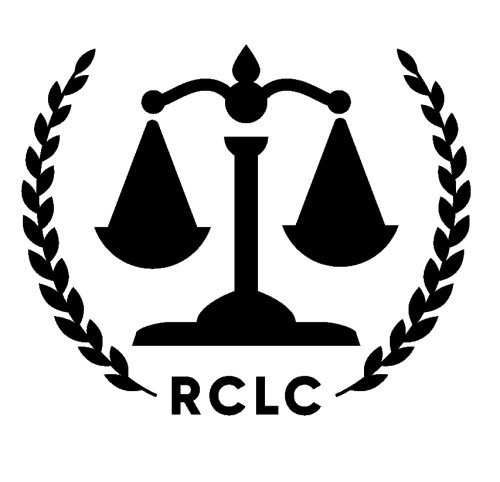Best Corporate & Commercial Lawyers in Harare
Share your needs with us, get contacted by law firms.
Free. Takes 2 min.
List of the best lawyers in Harare, Zimbabwe
About Corporate & Commercial Law in Harare, Zimbabwe
Corporate and commercial law in Harare, Zimbabwe is a dynamic area of legal practice that focuses on the regulation, organization, and conduct of businesses within the local and international marketplaces. Harare, being the country's economic hub, is home to numerous companies and entrepreneurs who often require legal guidance to navigate the evolving regulatory environment. This field encompasses matters such as company formations, mergers and acquisitions, compliance, shareholder rights, contract drafting, employment issues, and the everyday operational needs of businesses. Understanding the foundational laws and staying compliant is crucial for enterprises to operate successfully and avoid costly disputes.
Why You May Need a Lawyer
Legal assistance is valuable in many corporate and commercial situations. A lawyer can help you:
- Register and incorporate a new business or restructure existing entities
- Review, draft, or negotiate contracts with suppliers, customers, or business partners
- Advise on compliance with Zimbabwean company laws or sector-specific regulations
- Handle disputes involving shareholders, directors, or contractual partners
- Oversee complex transactions, such as mergers, acquisitions, or joint ventures
- Draft employment contracts and resolve workplace conflicts
- Advise on intellectual property protection and licensing
- Navigate issues related to foreign investment or exchange control regulations
- Assist with dissolution or liquidation of companies
- Represent your business in court or before regulatory bodies if legal proceedings arise
Engaging a qualified lawyer early can help prevent problems, ensure compliance, and protect your company’s interests.
Local Laws Overview
In Harare, corporate and commercial law is guided by several statutes and regulations. The principal law is the Companies and Other Business Entities Act [Chapter 24:31], which governs company formation, management, and compliance requirements. Key points for businesses include:
- All companies must register with the Companies Registry and file annual returns
- Directors, company secretaries, and key officers must meet specific qualifications and obligations
- Companies must maintain proper accounting records and financial statements
- Shareholders have defined rights and protections, including processes for meetings and resolutions
- Cross-border transactions often require compliance with exchange control regulations, overseen by the Reserve Bank of Zimbabwe
- Labour laws, such as the Labour Act [Chapter 28:01], set out employee rights and employer obligations
- Contract law is primarily governed by common law, though consumer protection and sector-specific statutes might also apply
- There are anti-money laundering and anti-corruption obligations, especially for financial and regulated entities
- Tax compliance is required under the Income Tax Act and VAT Act, administered by the Zimbabwe Revenue Authority (ZIMRA)
Due to the frequent updates to laws and regulations in Zimbabwe, it is vital for businesses to remain informed and to seek legal advice on specific matters.
Frequently Asked Questions
What is the process for registering a company in Harare?
To register a company, you must submit the relevant forms and documents to the Companies Registry in Harare, including the company’s memorandum and articles of association, details of directors and shareholders, and pay the prescribed fees. Once approved, you will receive a certificate of incorporation.
Do I need a local partner to set up a company as a foreigner?
Foreign investors can own companies in Zimbabwe, but there may be sector-specific restrictions or requirements. Certain industries require a minimum percentage of local ownership according to the Indigenisation and Economic Empowerment Act. Legal advice is recommended to clarify the rules for your sector.
What are the ongoing compliance requirements for companies?
Companies must hold annual general meetings, submit annual returns, maintain statutory records, keep proper accounting records, prepare audited financial statements, and update the Companies Registry of any changes in structure or officers.
How can disputes between shareholders be resolved?
Disputes may be resolved by consulting the company’s articles of association, shareholder agreements, or through negotiation, mediation, arbitration, or, as a last resort, litigation in the courts.
Are electronic contracts valid in Zimbabwe?
Electronic contracts are generally recognized under Zimbabwean law provided the parties give their consent and the agreement meets all the basic requirements of a valid contract. Certain documents may still require physical signatures or formal registration.
What taxes do businesses need to pay?
Businesses are required to pay corporate income tax, Value Added Tax (VAT), Pay As You Earn (PAYE) on employees’ salaries, and may be subject to other taxes depending on the nature of the business. Registration with ZIMRA is mandatory.
How can I protect my company’s intellectual property?
Intellectual property such as trademarks, patents, and copyrights can be registered with the Zimbabwe Intellectual Property Office. Legal protection helps prevent unauthorized use and provides remedies in case of infringement.
Can a company in Harare employ expatriates?
Employing expatriates is allowed, subject to securing the necessary work permits and complying with immigration laws. Companies should ensure local labour laws are followed in employment contracts.
What are the requirements for company liquidation?
Company liquidation can be voluntary or court-ordered. The process involves appointing a liquidator, settling debts, and distributing the remaining assets. Proper notice to creditors and regulatory filings are required.
Is it mandatory to have a company secretary?
Yes, every company must appoint a company secretary who meets the qualifications stipulated in the Companies and Other Business Entities Act. The company secretary’s role includes ensuring compliance with statutory obligations.
Additional Resources
If you need further information or assistance, the following resources may be helpful:
- Companies Registry, Registrar of Companies: The official authority for company registration and filings
- Zimbabwe Revenue Authority (ZIMRA): For tax registration and compliance matters
- Zimbabwe Investment & Development Agency (ZIDA): Assistance for foreign and local investors
- Zimbabwe Intellectual Property Office: Registration of trademarks, copyrights, and patents
- Zimbabwe Law Society: Directory of licensed legal practitioners in Zimbabwe
- Ministry of Industry and Commerce: Sector-specific business regulations and support
- Chamber of Commerce and Industry: Advice and advocacy for business operators
Next Steps
If you need legal assistance in corporate and commercial matters in Harare:
- Identify your specific issue or legal question
- Prepare all related documentation, such as contracts, certificates, or correspondence
- Contact a qualified lawyer or a reputable law firm that specializes in corporate and commercial law
- Schedule a consultation to discuss your situation and receive tailored guidance
- Follow your lawyer’s advice regarding compliance, documentation, and possible actions to protect your business interests
- Stay updated on upcoming changes in the law and maintain regular legal check-ups for your company
Early legal intervention can save time, prevent disputes, and help your business grow confidently within Zimbabwe’s regulatory landscape.
Lawzana helps you find the best lawyers and law firms in Harare through a curated and pre-screened list of qualified legal professionals. Our platform offers rankings and detailed profiles of attorneys and law firms, allowing you to compare based on practice areas, including Corporate & Commercial, experience, and client feedback.
Each profile includes a description of the firm's areas of practice, client reviews, team members and partners, year of establishment, spoken languages, office locations, contact information, social media presence, and any published articles or resources. Most firms on our platform speak English and are experienced in both local and international legal matters.
Get a quote from top-rated law firms in Harare, Zimbabwe — quickly, securely, and without unnecessary hassle.
Disclaimer:
The information provided on this page is for general informational purposes only and does not constitute legal advice. While we strive to ensure the accuracy and relevance of the content, legal information may change over time, and interpretations of the law can vary. You should always consult with a qualified legal professional for advice specific to your situation.
We disclaim all liability for actions taken or not taken based on the content of this page. If you believe any information is incorrect or outdated, please contact us, and we will review and update it where appropriate.
Browse corporate & commercial law firms by service in Harare, Zimbabwe
Harare, Zimbabwe Attorneys in related practice areas.















